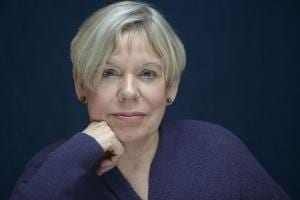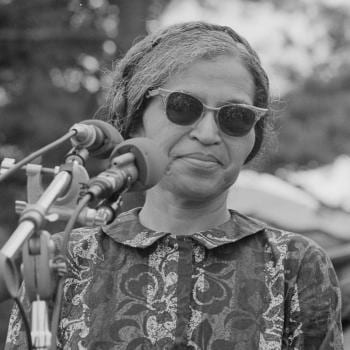 When you are the strongest person you know, you cannot help but feel weak. Everyone needs a hero. Once we understand this, terms like strength and weakness become interchangeable. In a world where survival of the fittest has come to mean survival of the most brutal, is it any wonder that it’s a man’s world?
When you are the strongest person you know, you cannot help but feel weak. Everyone needs a hero. Once we understand this, terms like strength and weakness become interchangeable. In a world where survival of the fittest has come to mean survival of the most brutal, is it any wonder that it’s a man’s world?
When we turn our attention to the most powerful women in the world, we should not just celebrate women who have succeeded in this world the way men have. We should not just calculate statistics and count have many dollars they have earned, or battles they have fought, or empires they helped to raise and destroy. To celebrate International Women’s Day, we need to see with the heart of compassion what men have spent centuries trying to glean with the eyes of reason. We need to celebrate our faith in the immeasurable, the infinite, the divine. Perception is our power tool. And if and when the feminine spirit misperceives reality, it is divine intervention that she perceives it in the interest of maintaining peace and avoiding conflict.
Perception is not as mathematical as reality, but it is by no means a soft power. Emotions, love, compassion are impractical in a world where conquest has become the creed to our survival. But just imagine a world that evolves purely on the basis of practical contingencies and you will understand just how powerful the mitigating effects of perception can be.

If we are going to celebrate women and acknowledge their ongoing contribution to society, we must not only applaud those women who have broken glass ceilings, but also women who have elevated the consciousness of humanity by safeguarding our hearts, tearing down walls, and building bridges; The women of faith. And if there is one woman deserving of the honor of being crowned the women of faith from across all faiths, that woman is scholar and historian Karen Armstrong. Although she is best known for her historical studies of Judaism, Christianity and Islam, no modern woman has encapsulated the forgiving, loving, powerful and common spirit of all faith traditions more brilliantly than Karen Armstrong.
Armstrong has traveled both literally and metaphorically across and within all three monotheistic traditions. She has written countless books starting with her first memoir, Through the Narrow Gate, which chronicled her seven years as a novice nun, to one of her more recent books, Twelve Steps to a Compassionate Life. She has studied the world’s religions both academically and spiritually and has inspired a global movement by memorializing the one core value of all religions through a document she calls, The Charter of Compassion.
But the most inspiring part of Karen Armstrong’s legacy is not her academic genius, but her personal life. Her second memoir, The Spiral Staircase, is a truly intimate account of her life’s journey, with a title, which serves as the perfect metaphor for her life and the life of anyone, who like Armstrong, wants to “find God.” The Spiral Staircase symbolizes spiritual growth, which Armstrong describes as a feeling that she is going around and around in circles and not getting anywhere only to realize that she is moving upward, up a spiral staircase, out of the darkness and into the light.
As women of faith and guardians of the human heart we too must continue the dizzying journey until we discover that we are not just moving in circles and getting nowhere, but that we too, are collectively moving upwards out of the darkness and into the light, with faith as our guide. When you are the strongest person you know, you cannot help but feel weak. Everyone needs a hero. And today, that hero is you! Happy International Women’s Day.















